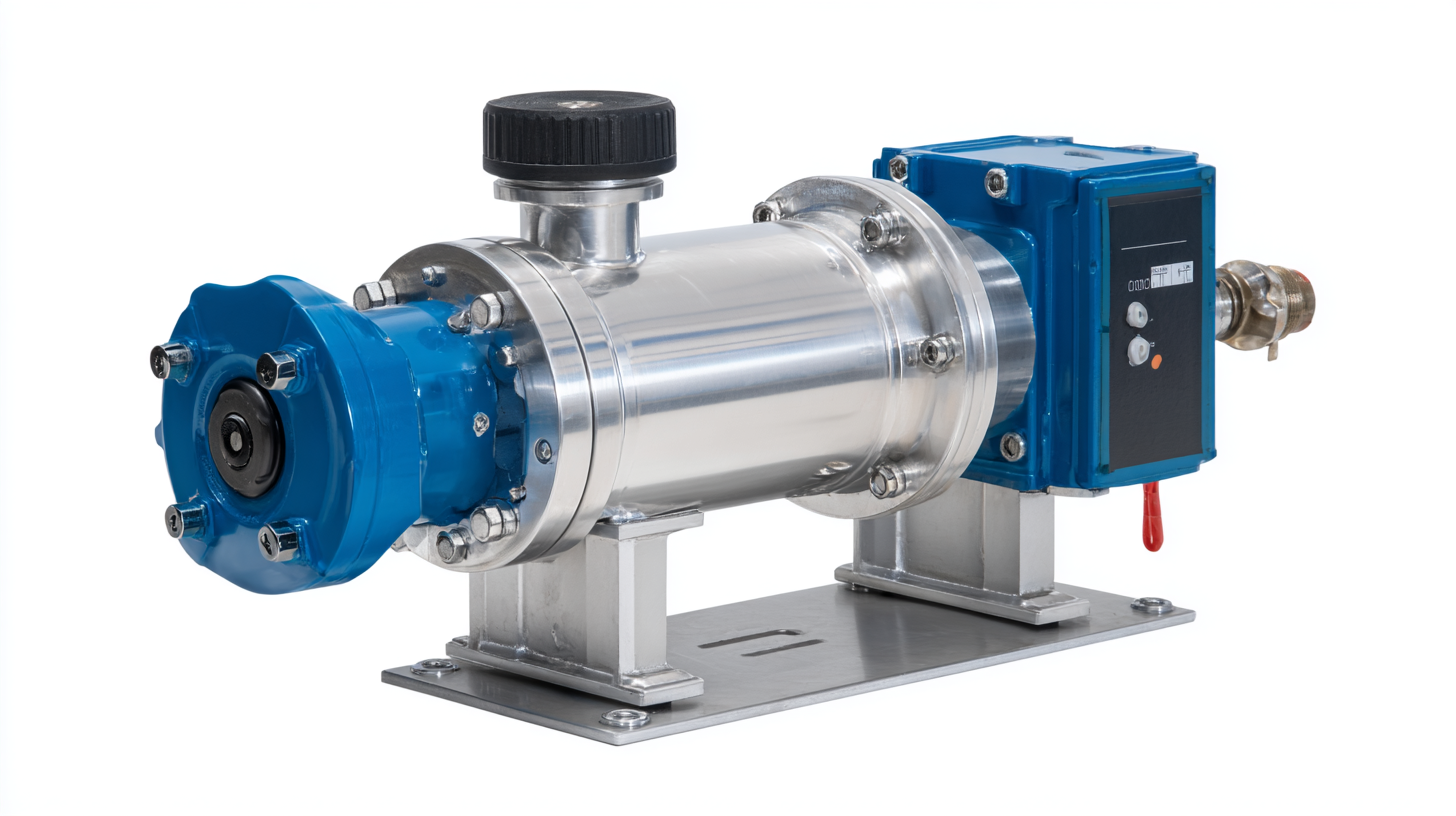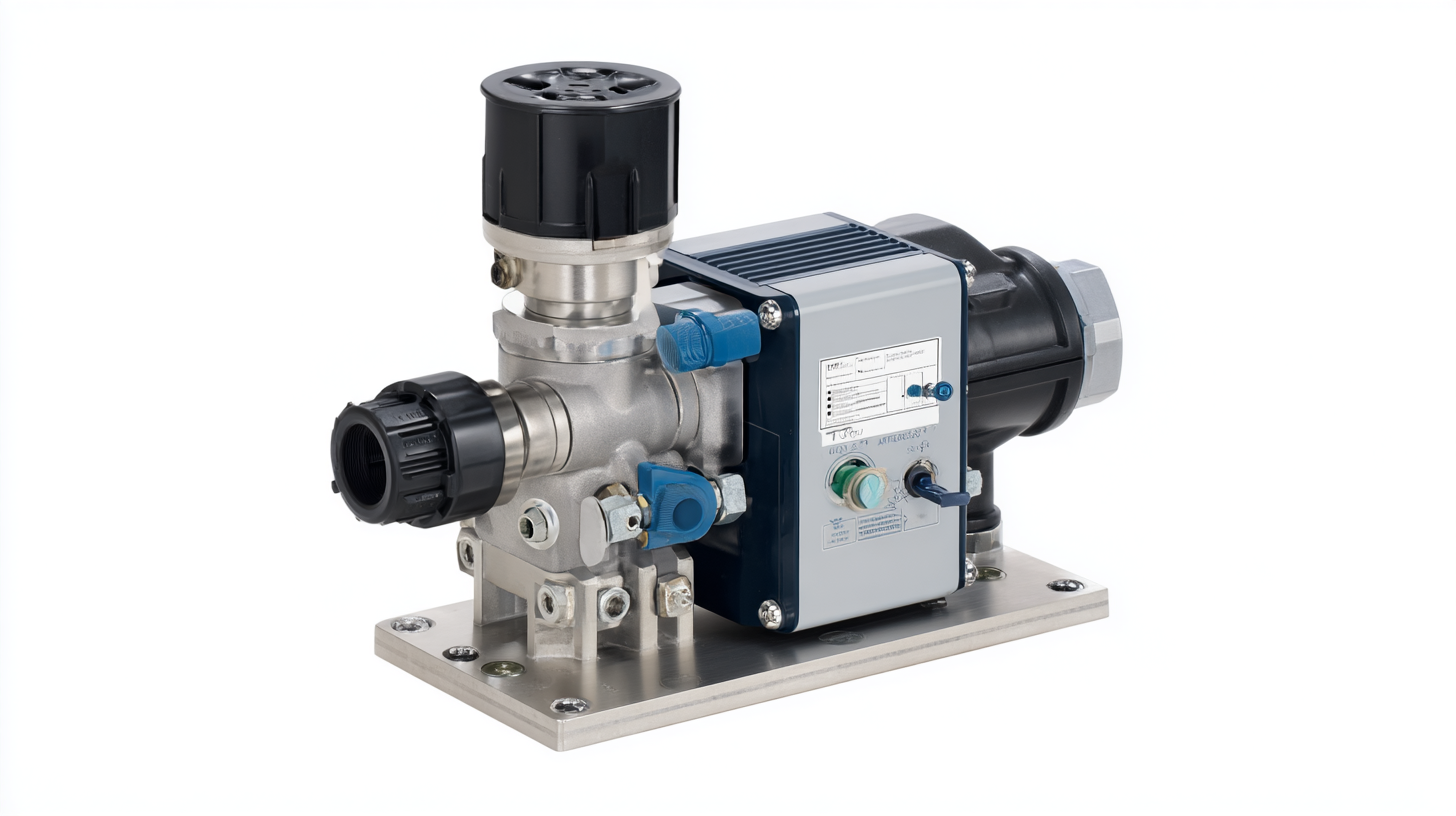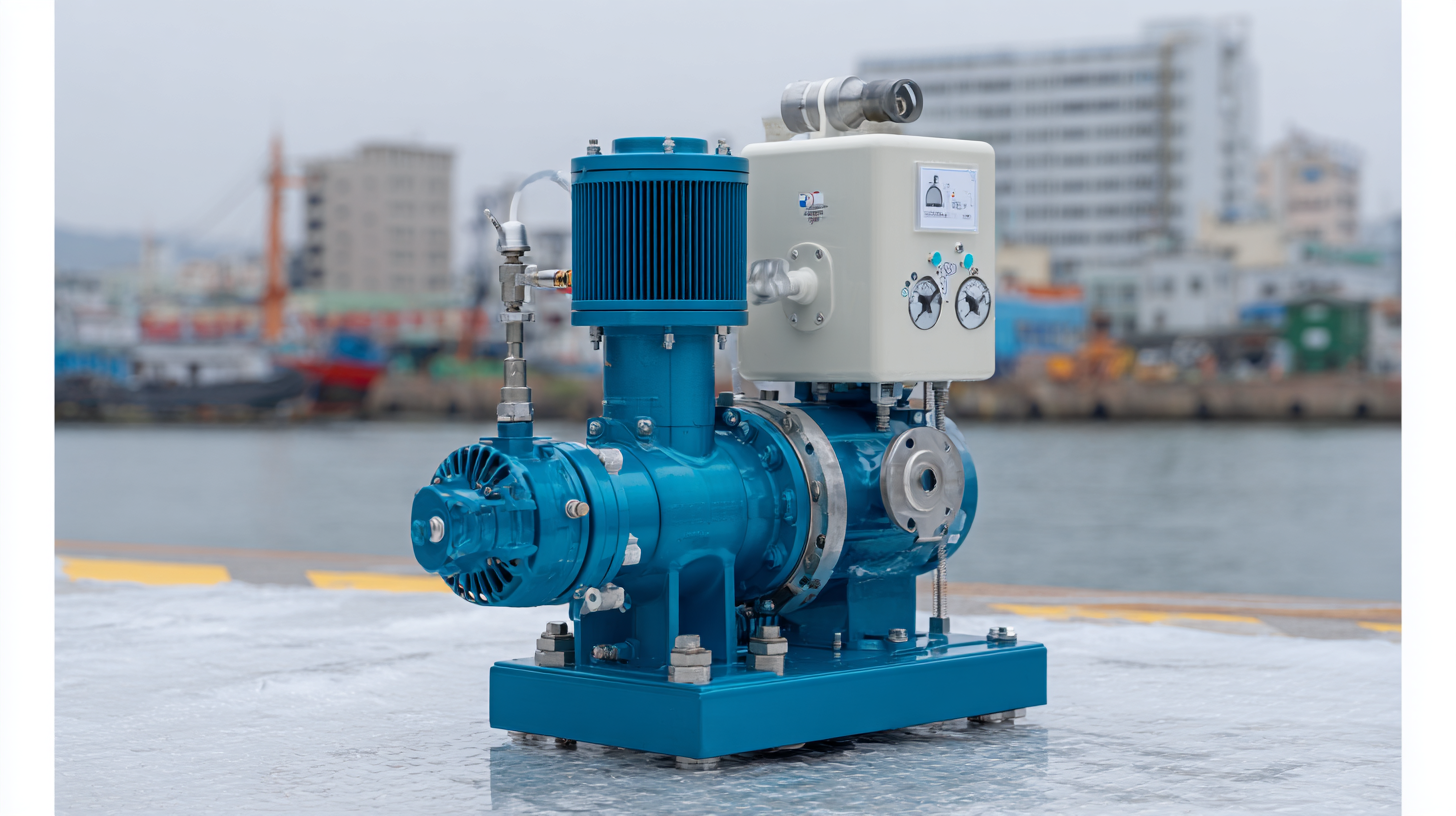

In the ever-evolving landscape of industrial equipment, understanding the technical specifications of the best chemical dosing pump is crucial for ensuring efficiency and reliability in operations. As we look towards the technological development trends of 2025, it becomes evident that advancements in materials, precision engineering, and smart technology integration are set to reshape the chemical dosing pump market.

This blog will delve into the intricacies of selecting a top-performing chemical dosing pump, exploring its components, functionalities, and the significance of precise dosing in various applications. Additionally, we will provide a practical guide on how to choose the right chemical dosing pump, ensuring that you are equipped with the knowledge to make informed decisions in a competitive and rapidly changing industry.
Join us as we explore the key elements that define the future of chemical dosing solutions.
When selecting a high-quality chemical dosing pump, understanding its technical specifications is crucial. Key features that define the efficacy of these pumps include flow rate, pressure capability, and material compatibility. For instance, a typical chemical dosing pump can achieve flow rates ranging from 0.1 to 100 gallons per hour, depending upon the application requirements. Pumps constructed from corrosion-resistant materials are essential when dealing with aggressive chemicals, ensuring longevity and reliability.

Moreover, the integration of advanced technologies into dosing pumps—such as variable speed drives and automated control systems—can significantly enhance operational efficiency. As highlighted in recent studies, optimizing these operational factors not only maximizes chemical dosing accuracy but also improves the overall process efficiency. For example, employing intelligent control mechanisms can lead to a reduction in chemical usage by up to 30%, which has profound implications for both cost savings and environmental sustainability in industries such as pharmaceuticals and chemicals. By focusing on these key specifications, businesses can ensure they invest in the most suitable and efficient chemical dosing pumps available in the market.
Precision in chemical dosing applications is critical for ensuring safety, compliance, and the efficiency of various processes across industries. A slight deviation in the dosing of chemicals can have profound implications, from affecting the quality of the final product to causing environmental hazards or regulatory fines. Therefore, understanding the technical specifications and capabilities of chemical dosing pumps is essential for those responsible for maintaining high standards in their operations.
High-quality chemical dosing pumps are designed to provide accurate and consistent delivery of liquids, minimizing the risk of dosing errors. Features such as adjustable flow rates, precise control mechanisms, and integration with monitoring systems are crucial for maintaining the desired chemical concentrations. Moreover, pumps constructed with durable materials are essential to withstand the corrosive nature of many chemicals, ensuring long-term reliability and performance. By prioritizing precision in chemical dosing, industries can enhance operational efficiency while safeguarding against potential risks.
Chinese manufacturers are increasingly becoming key players in the global pump market, particularly in the chemical dosing pump segment. According to a report by ResearchAndMarkets, the global market for chemical dosing pumps is expected to reach USD 6.2 billion by 2026, with a significant portion of this growth driven by advancements in Chinese manufacturing. Companies such as Grundfos and Yamada have set high standards for pump quality, and Chinese firms are not just keeping pace; they are innovating with features like enhanced energy efficiency and reliability.
Tip: When considering chemical dosing pumps, it's crucial to evaluate their compatibility with various chemicals. Not all materials can withstand aggressive fluids, leading to premature failure if not carefully selected.
Moreover, Chinese manufacturers are investing heavily in R&D to ensure their products meet international standards. A study by Mordor Intelligence highlights that 58% of respondents in the Asian Pacific region prioritize quality and compliance when selecting pumps. This trend is indicative of a broader commitment to quality that challenges prior perceptions of Chinese products.
Tip: Always look for pumps that offer a comprehensive warranty and have undergone rigorous testing. This not only safeguards your investment but also ensures peace of mind regarding performance longevity.
The landscape of chemical dosing pumps is rapidly evolving, driven by innovative technologies that enhance efficiency, precision, and reliability. Modern chemical dosing pumps are now equipped with advanced features such as smart sensors, IoT connectivity, and automated control systems. These technologies allow for real-time monitoring and adjustments, ensuring that the correct amounts of chemicals are dosed with minimal human oversight. This not only improves operational safety but also reduces waste and minimizes the environmental impact of chemical usage.
Furthermore, the integration of artificial intelligence in chemical dosing systems is paving the way for predictive maintenance and operational optimization. AI algorithms analyze pump performance data to forecast potential issues before they arise, allowing for timely maintenance and avoiding costly downtime. This proactive approach not only extends the lifespan of the equipment but also enhances the overall efficiency of chemical applications across various industries. As these innovative technologies continue to advance, they promise to redefine standards in chemical dosing precision and operational excellence.

When it comes to selecting the right chemical dosing pump for your needs, a comparative analysis of technical specifications can make all the difference. Different applications require different features, such as flow rates, pressure handling capabilities, and materials of construction. It's essential to assess your specific requirements carefully and match them with the capabilities of the pumps available on the market. For example, choose a diaphragm pump for applications involving corrosive chemicals, as they tend to offer better protection and safety.
**Tip:** Always consider the viscosity and temperature of the chemicals you plan to pump; these factors significantly influence pump performance and longevity. Additionally, understanding the control system—manual versus automated—can help streamline your operations and ensure precise dosing.
Another critical aspect is the ease of maintenance and access to replacement parts. Pumps designed for easy disassembly and with readily available parts can save you time and costs in the long run. Evaluating user reviews and manufacturer support can also provide valuable insights into the reliability and efficiency of a pump.
**Tip:** Conducting a small pilot test with your chosen pump can help determine its suitability for your specific application before making a large-scale investment.
Copyright © 2023 TUF Pump Industry (Jiangsu) Co., Ltd. - Stainless Steel Centrifugal Pump, Chemical Pump, Metering Pump - All Rights Reserved.